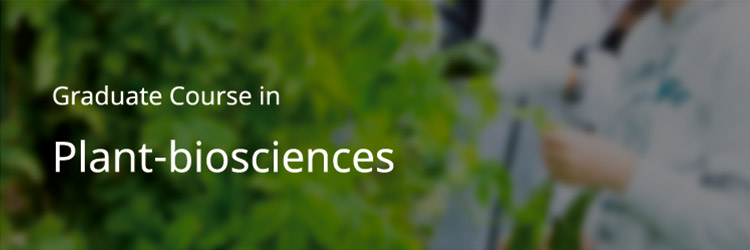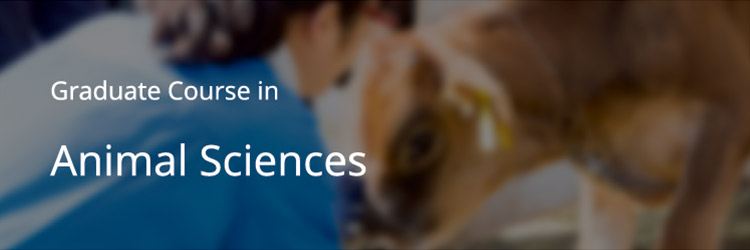Division of Agriculture
The Graduate School of Agricultural Sciences of Iwate University aims to train the Graduates who can meet the challenges posed by the rapid globalization of agricultural sciences, develop applied technologies to assist with the restoration of the areas affected by the Great East Japan Earthquake and Tsunami, and actively address local issues through utilizing the rich natural resources of the Tohoku Region.
Cold climate agriculture is a focal point of both our agricultural and bioscience education and research programs. We proudly publish these academic achievements both in local and globalplatforms.

Graduate Course in
Plant-biosciences

Course content
Production of high quality crops, fruits, and flowers takes more than just breeding better varieties. Understanding the molecular mechanisms for plant survival that improve their responses to climate and environmental changes as well as their resistances to viruses and insects are also necessary.
The graduate course in plant biosciences uses next-generation technologies that engage the potentials of plants, viruses, and insects.
Our program provides opportunity for education and research in a vast diversity of fields including horticulture, plant pathology, agronomy, entomology, plant breeding, plant physiology, and sustainable agriculture.
The students are trained with wide scientific perspectives ranging from gene to field.
Features
This course covers all aspects of agriculture and related fields. The students are required to submit research thesis for completion of the degree. Students are given extensive opportunities to gain specialized knowledge on plant/crop production ans sustainable agriculture.
They are also encouraged to develop research skills from genes to production using laboratory and field facilities. We expect the graduation thesis of the students to be focused on developing solutions of unique problems using cutting edge research technologies, leading to creation of new discoveries and technologies which will be beneficial for both academic world and society.
Graduates of this course are expected to be the human resources who will be able to think about all aspects of modern society and can adapt to excel in all agricultural fields and beyond.

Graduate Course in
Biological Chemistry and Food Sciences

Course content
We encompass all aspects of life phenomena, primarily from a chemistry perspective, and our focus spans from microorganisms up through plants and animals, also covering ecological systems necessary to sustain life as well as their various functions and the substances they produce and consume.
Building on a foundation of organic, inorganic, and biochemistry, students are engaged with opportunities to develop in a multitude of directions including lab research techniques for the biosphere’s material cycle, analysis of the biological functions of microorganisms, plants, and animals with cutting-edge technologies, physical and chemical food analysis and processing technologies, and leveraging nutrition to prevent diseases while using natural health mechanisms in biological resources.
Features
Our instructors offer study into a vast range of fields spanning everything from microorganisms to plants and animals.
This diverse academic environment provides a broad knowledge base that encourages thought from various perspectives.

Graduate Course in
Animal Sciences

Course content
The Graduate Course in Animal Sciences provides research opportunities on animal and life sciences and offers focuses on industrial, lab, captive, and wild animals.
Students develop specialize knowledge on animal physiology, biology, nutrition, genetics, breeding, behavior, and products.
Features
We encompass a wide range of animals including ruminants, chickens and other industrial animals, as well as wild, captive, and lab animals. The characteristics of each of these animals are the focus of research projects.


